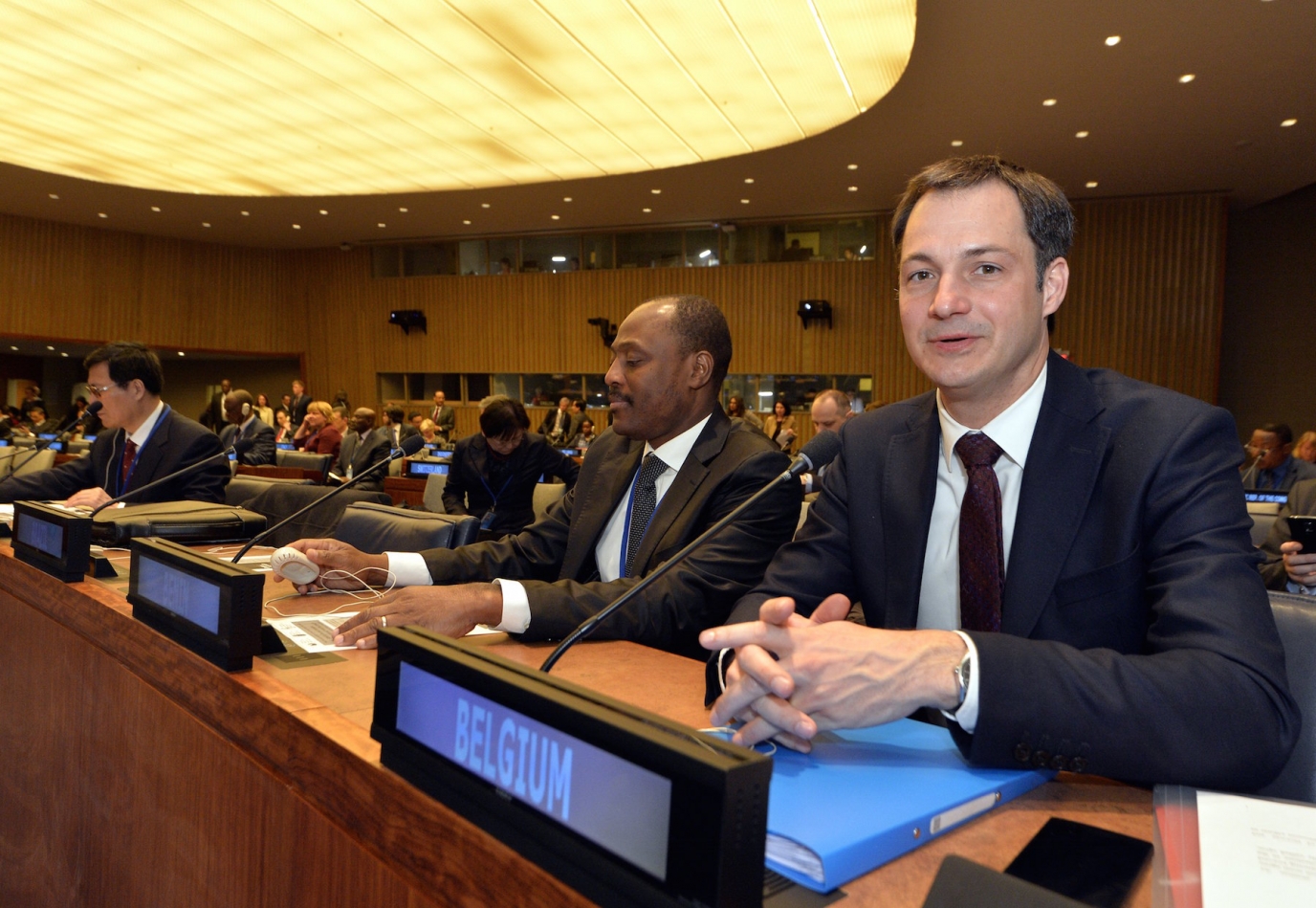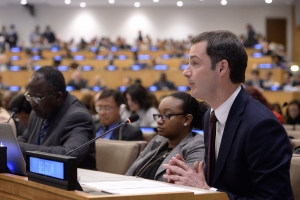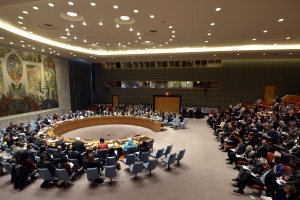Intervention during the 48th UN Committee Population & Development:

Dear Madam Chair,
Distinguished representatives,
Ladies and gentlemen,
Belgium aligns itself with the statement made by the European Union.
Let me first of all congratulate my compatriot, Ambassador Bénédicte Frankinet, for taking up the chair of this year’s Commission on Population and Development. As we all know, the outcome of this session will be important for the Post-2015 exercise. Therefore, I hope that the entire UN membership will reaffirm its commitment to the implementation of the ICPD so that these principles can be integrated in the Post-2015 framework.
Population issues are at the heart of the Post-2015 Agenda. If we want to achieve the sustainable development goals we need to take into account contrasting population dynamics. Governments have the responsibility to integrate these population dynamics in planning their policies.
We need to ensure that no-one is left behind: everyone counts. Continuing inequalities must be lifted. All sorts of discriminations continue to prevail: discrimination or violence based upon gender, sexual orientation, disabilities or age. These hinder the enjoyment of human rights for all as well as the full implementation of the ICPD.
I know it is a commonplace, but in this forum it needs to be repeated: more than half of the global population are women. And yet, everywhere in the world women are fighting for their rights, rights that are key to human development. A woman’s right to education. A girl’s right not to be forced into marriage. A young woman’s right to decide freely and responsibly over her sexual and reproductive health.
Young people need access to information to make informed choices and decisions. In Belgium, comprehensive sexuality education is part of school curricula. Knowledge is essential for young people to enjoy their sexuality – physically and emotionally, individually and in relationships. Furthermore, we have made contraceptives for young people free and established over-the–counter access to emergency contraceptives. As a result, Belgium has one of the lowest rates of teenage pregnancy and maternal mortality in the world.
A second area of concern, equally important, are the rights of lesbians, gays, bisexuals and transgenders. In Belgium, we have protected and recognized the rights of sexual minorities by law. Twelve years ago, we were among the first countries in the world, together with the Netherlands, to allow same-sex marriage. And violence against LGBTs is treated as a hate crime because we are convinced that discriminatory laws and practices imperil basic human rights.
Discrimination against and oppression of LGBTs has important consequences. Such discrimination inhibits campaigns against HIV prevention and access to treatment, leading to the further spread of HIV and other STI’s. How can we ever guarantee effective sexual health policies if certain groups of people are deliberately put out of society?
Thirdly, everyone should be able to count. We have to transform the demographic growth into a true demographic dividend. For this, quality education is key. Belgium firmly believes in the potential of every individual to contribute positively to society, including girls. Evidence clearly shows that educated women and girls are empowered, live healthier lives and have better educated children themselves. Educated women and girls also contribute positively to society and to the economy. Belgium firmly believes in gender equality. Gender-based violence is unacceptable. It undermines individual development. And it has devastating effects on societies. Often, survivors of sexual violence are so stigmatized that they are excluded from their communities. We, as governments, have a responsibility to set the example. We cannot blame victims. We must make sure perpetrators are called to justice.
Last but not least, let’s make sure everyone is counted. Every child that is born has the right to be registered - and thus to exist. How can you claim your rights if you do not even officially exist? A birth certificate is an entrance ticket to life. It opens doors to education, social protection and decent jobs. Registration and demographic data allow governments to provide adequate health care and education, balance resources and budgets, and draft long-term policies. We are looking forward to continue to work with all governments, the UN system and civil society for a strong and ambitious outcome for this CPD. We need to send a strong commitment to the Post-2015 debate.
Let us build a world in which no one, no child, no young person, no elderly, no woman or girl, is left behind. Let us build upon peaceful, sustainable and just societies where people make their own choices, and live the lives they want in freedom and dignity.


